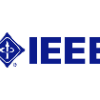We consider the problem of shared randomness-assisted multiple access channel (MAC) simulation for product inputs and characterize the one-shot communication cost region via almost-matching inner and outer bounds in terms of the smooth max-information of the channel, featuring auxiliary random variables of bounded size. The achievability relies on a rejection-sampling algorithm to simulate an auxiliary channel between each sender and the decoder, and producing the final output based on the output of these intermediate channels. The converse follows via information-spectrum based arguments. To bound the cardinality of the auxiliary random variables, we employ the perturbation method from [Anantharam et al., IEEE Trans. Inf. Theory (2019)] in the one-shot setting. For the asymptotic setting and vanishing errors, our result expands to a tight single-letter rate characterization and consequently extends a special case of the simulation results of [Kurri et al., IEEE Trans. Inf. Theory (2022)] for fixed, independent and identically distributed (iid) product inputs to universal simulation for any product inputs. We broaden our discussion into the quantum realm by studying feedback simulation of quantum-to-classical (QC) MACs with product measurements [Atif et al., IEEE Trans. Inf. Theory (2022)]. For fixed product inputs and with shared randomness assistance, we give a quasi tight one-shot communication cost region with corresponding single-letter asymptotic iid expansion.
翻译:暂无翻译




